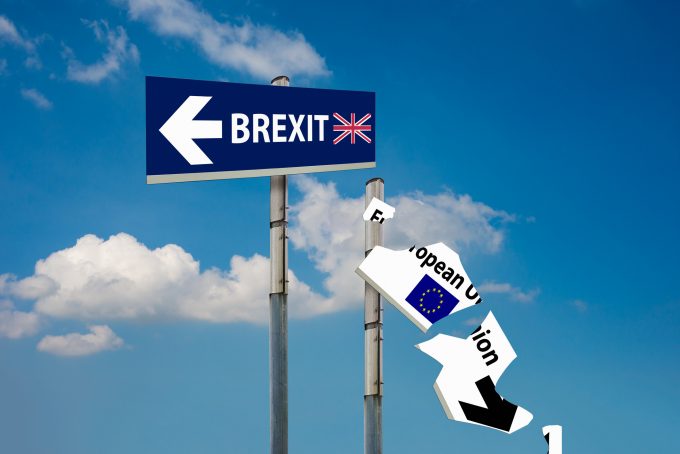'Partial win' for UK supply chains as EC delays potentially disruptive checks
Efforts at restoring EU-UK relations appear to have made some headway, the bloc agreeing to ...
TFII: SOLID AS USUALMAERSK: WEAKENINGF: FALLING OFF A CLIFFAAPL: 'BOTTLENECK IN MAINLAND CHINA'AAPL: CHINA TRENDSDHL: GROWTH CAPEXR: ANOTHER SOLID DELIVERYMFT: HERE COMES THE FALLDSV: LOOK AT SCHENKER PERFORMANCEUPS: A WAVE OF DOWNGRADES DSV: BARGAIN BINKNX: EARNINGS OUTODFL: RISING AND FALLING AND THEN RISING
TFII: SOLID AS USUALMAERSK: WEAKENINGF: FALLING OFF A CLIFFAAPL: 'BOTTLENECK IN MAINLAND CHINA'AAPL: CHINA TRENDSDHL: GROWTH CAPEXR: ANOTHER SOLID DELIVERYMFT: HERE COMES THE FALLDSV: LOOK AT SCHENKER PERFORMANCEUPS: A WAVE OF DOWNGRADES DSV: BARGAIN BINKNX: EARNINGS OUTODFL: RISING AND FALLING AND THEN RISING

UK trade groups and freight firms today were digesting this morning’s news that the country has voted to depart the European Union.
The UK’s trade links with Europe and the rest of the world will be at the forefront of its exit negotiations with the EU, with a two-year deadline to the country’s departure, as per the Lisbon Treaty.
Kevin Buchannan, managing director of pallet network Pall-Ex Group expressed some of the disappointment that many in the country’s freight industry have felt at the referendum’s result.
“As a business, we’ve always said that Britain is stronger in Europe. We’re saddened that the majority of people didn’t share our view.
“We stand firm in our belief that the UK’s supply chain will be deeply affected by the referendum outcome, as it’s always relied on an efficient international logistics network. Jobs, trade and investment are all likely to be impacted,” he said.
The Freight Transport Association reiterated its warning that a Brexit is likely to be accompanied by higher supply chain costs. “One example is the need for international road transport customs carnets, last used by the UK in 1992, which are required to allow goods to move under customs control across international borders.”
The organisation called on the government “to prioritise arrangements for international freight transport in its negotiations”.
FTA chief executive David Wells said: “Even though we are coming out of Europe politically, it remains our biggest export market and the supplier of a high proportion of our imports. We cannot allow new bureaucratic burdens to hamper the efficient movement of exports heading for customers and imported goods destined for British consumers.
“The Government has two years to ensure the conditions currently imposed on other non-EU member states such as Albania and Serbia are not imposed on UK freight flows. Norway and Switzerland have better arrangements but have accepted tough conditions including the free movement of people, so this will be a difficult negotiation,” he added.
The British International Freight Association’s (BIFA) director general Robert Keen said: “BIFA is a neutral body and will now be looking at the ways in which we can support our members as the forthcoming legislative changes become apparent between now, the day that the UK formally triggers the resignation process and the date the country’s exit becomes effective.
“Today the UK is still a member of the EU and it is too soon to start speculation on the outcome of two years plus of negotiations regarding trade deals and movement of goods.”
One EU country that will be particularly concerned by the result is Ireland, the only EU member which shares a land border with the UK. FTA Ireland (FTAI) called on the Irish government to ensure that the existing “mutual arrangements continue as they have done for almost 100 years once the UK’s membership of the EU ends”.
Neil McDonnell, FTAI general manager, said: “It now falls to the Irish Government to ensure that Ireland maintains the free movement, commercial, legal and social arrangements with Northern Ireland and Great Britain that it has enjoyed since 1922.
“The UK is Ireland’s largest mutual trading partner and FTA Ireland will do all it can to support this objective,” he added.
Comment on this article